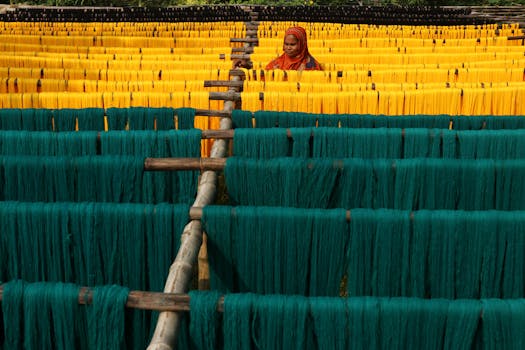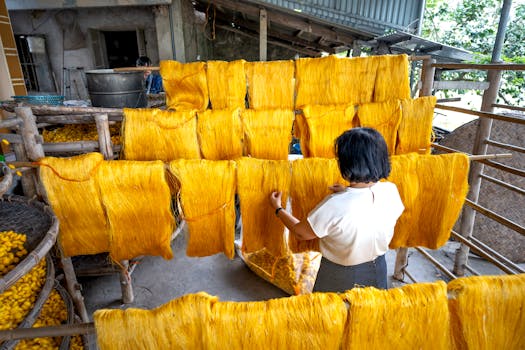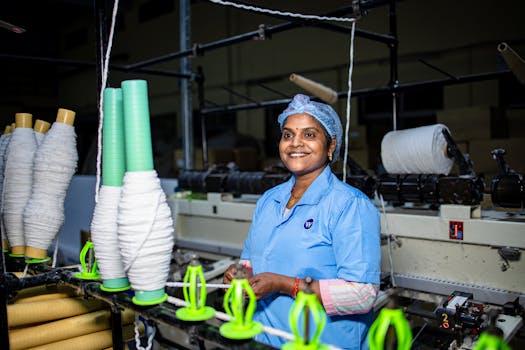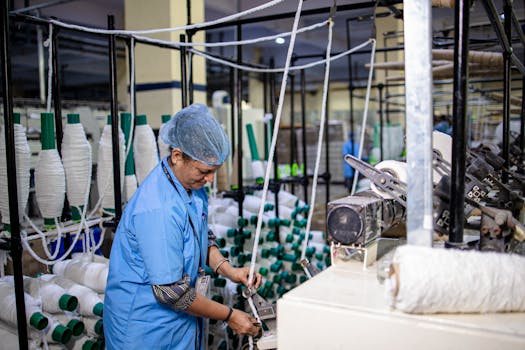Empowering Communities: The Role of Women in Africa’s Fiber Production
Empowering Communities: The Role of Women in Africa’s Fiber Production is a crucial aspect of the continent’s economic and social development. Women have long been involved in the production of fiber, which is used to create a variety of essential products such as clothing, textiles, and crafts. In Africa, women are the primary producers of fiber, and their contributions have a significant impact on the well-being of their communities.
In many African countries, women are responsible for the cultivation, harvesting, and processing of fiber crops such as cotton, flax, and hemp. These crops are often grown on small-scale farms, and women play a vital role in ensuring their successful production. Through their hard work and dedication, women are able to generate income and support their families, which in turn contributes to the economic development of their communities.
The Importance of Women in Fiber Production

The importance of women in fiber production cannot be overstated. Not only do they provide the necessary labor and skills to produce high-quality fiber, but they also play a key role in the preservation of traditional techniques and knowledge. In many African cultures, the production of fiber is a time-honored tradition that has been passed down from generation to generation, and women are the primary guardians of this knowledge.
Furthermore, the involvement of women in fiber production has a positive impact on the social development of their communities. By generating income and contributing to the local economy, women are able to improve their socio-economic status and gain greater autonomy and independence. This, in turn, has a positive impact on the well-being of their families and communities, as women are able to invest in education, healthcare, and other essential services.
Challenges Faced by Women in Fiber Production

Despite the importance of women in fiber production, they often face significant challenges in their work. One of the main challenges is the lack of access to resources such as land, credit, and technology. In many African countries, women are denied the right to own land, which makes it difficult for them to cultivate fiber crops and generate income. Additionally, women often lack access to credit and other financial services, which makes it challenging for them to invest in their businesses and improve their productivity.
Another challenge faced by women in fiber production is the lack of recognition and support for their work. In many societies, the contribution of women to fiber production is undervalued and unseen, which can make it difficult for them to gain the recognition and rewards they deserve. Furthermore, women often face significant barriers in terms of education and training, which can limit their ability to acquire new skills and knowledge and improve their productivity.
Initiatives to Empower Women in Fiber Production

There are several initiatives that have been launched to empower women in fiber production and address the challenges they face. One such initiative is the provision of training and education programs that are specifically designed to meet the needs of women. These programs provide women with the skills and knowledge they need to improve their productivity and generate income, and they also provide a platform for women to share their experiences and learn from each other.
Another initiative is the provision of access to credit and other financial services. This can be achieved through the establishment of microfinance programs and other initiatives that provide women with the capital they need to invest in their businesses and improve their productivity. Additionally, there are initiatives that aim to promote the recognition and valuation of women’s work in fiber production, such as the development of certification programs and other schemes that recognize the quality and value of women’s products.
See more:
